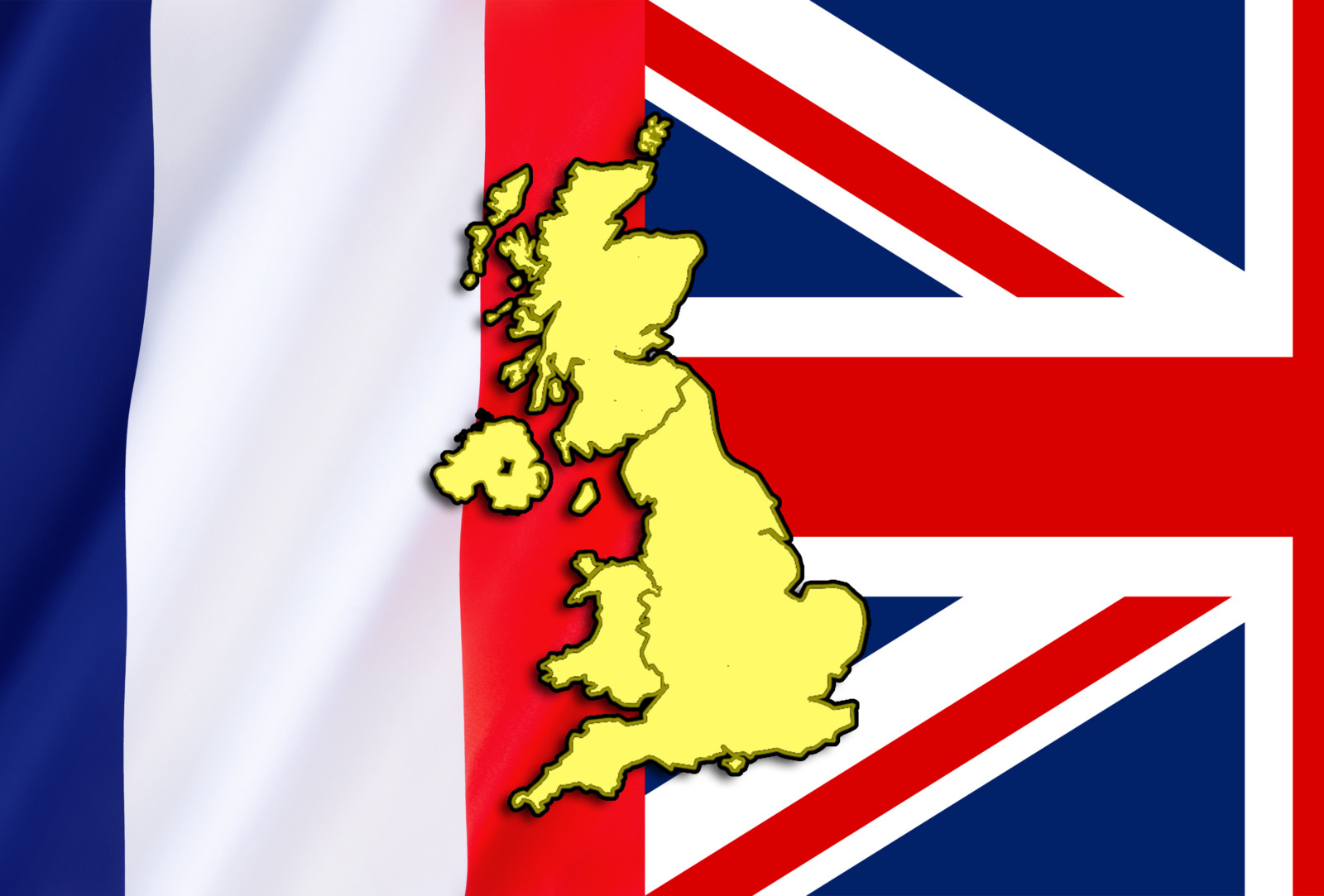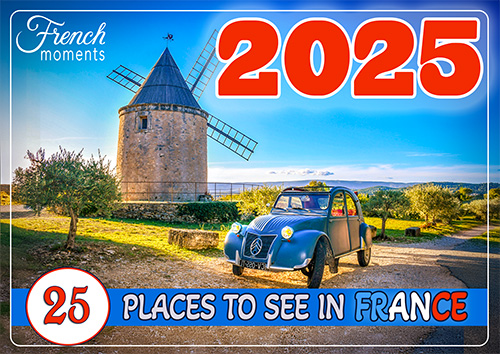What is ‘England’ in French? This might be an easy question for francophiles and francophones to answer. But we should never take for granted that, for many, the answer is not so obvious. So here is how French speakers say it… with further exciting facts to learn about the word.
What is ‘England’ in French?
The answer is… ANGLETERRE!
For those of you who can read IPA, the pronunciation in French is \ɑ̃.ɡlə.tɛʁ\.
🎶 How to say ‘Angleterre’ in French ⤵
The French name of England comes from the name of the Angles, a tribe that made their home there from the mid-5th to early 7th centuries, and from terre, ‘land’.
Angleterre is a feminine word in French : L’ (la) Angleterre – une Angleterre.
The translation of the word ‘English’ in French is anglais (masc.) and anglaise (fem.).
🎶 How to say ‘Angleterre’ in French ⤵
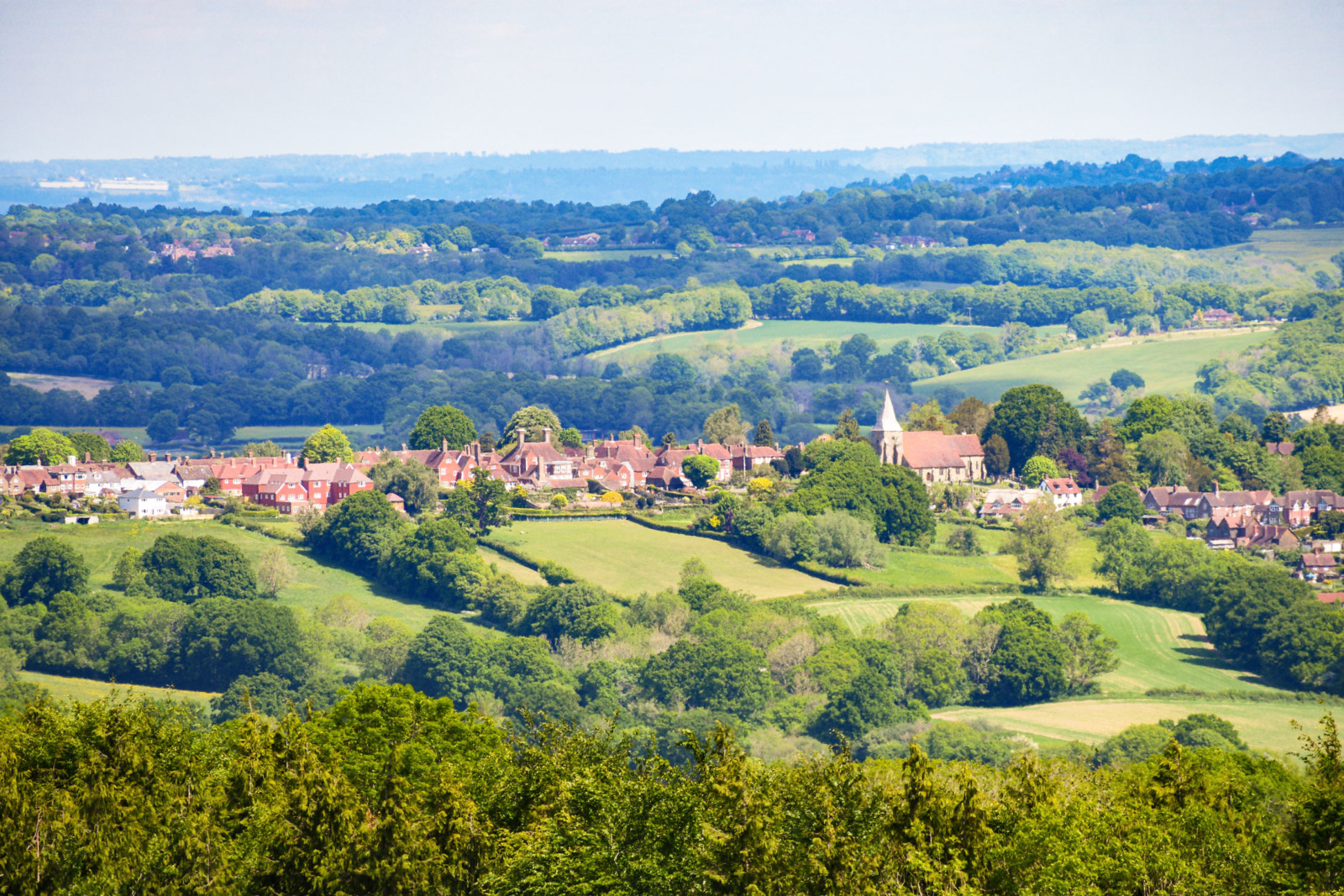
Where does the French name “Angleterre” come from?
The origin of the word “Angleterre” comes from two words:
- “angle” i.e. the Angles, a Germanic tribe from the Angeln peninsula (in northern present-day Germany)
- and “terre“, meaning land.
The name ‘Angleterre’ has originated several other words in French that are derived from it. For example:
- anglais, anglaise (Les beaux jardins anglais du Kent)
- Anglais, Anglaise (Les Anglais habitent en Angleterre)
- anglophone (John est anglophone)
- anglophile (Pierre est anglophile)
- anglophobe (Jean-Marie est anglophobe)
- anglo-saxon (l’héritage anglo-saxon du Canada)
- anglican, anglicane (l’église anglicane du village)
- anglo-normand, anglo-normande (Jersey et Guernesey sont des Îles anglo-normandes)
In turn, the English call France FRANCE and the people of France are the French.
England in French: Interesting facts
By metonymy, the word Angleterre (England) is often used to refer to Britain or the United Kingdom.
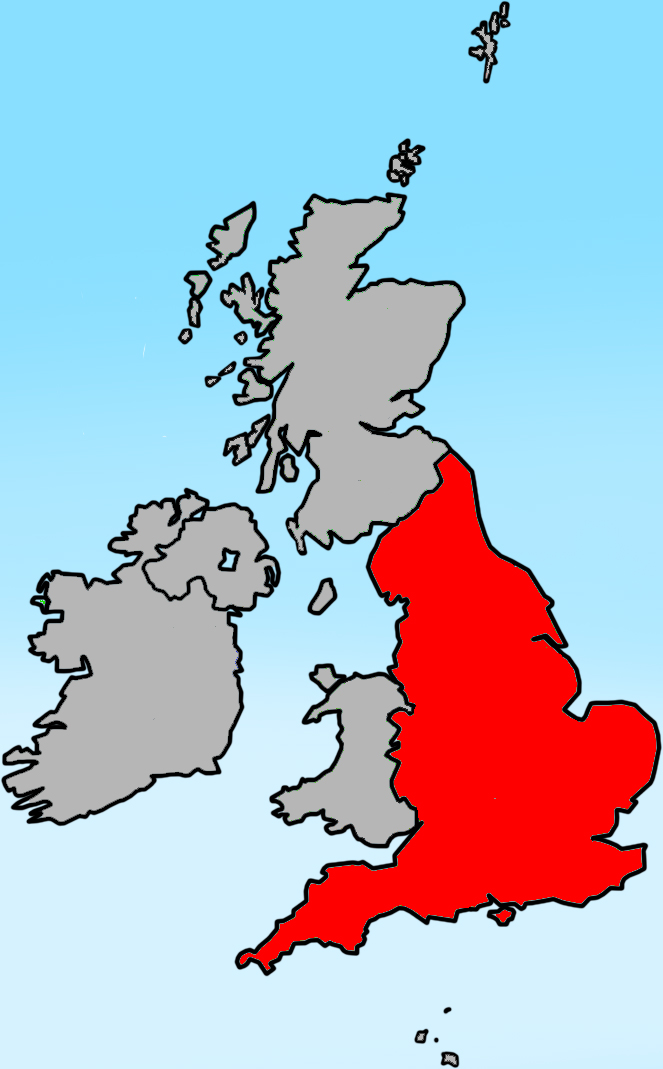
However, there is a distinction between the different nations subject to the Crown.
Great Britain in French
In French, Great-Britain is la Grande-Bretagne.
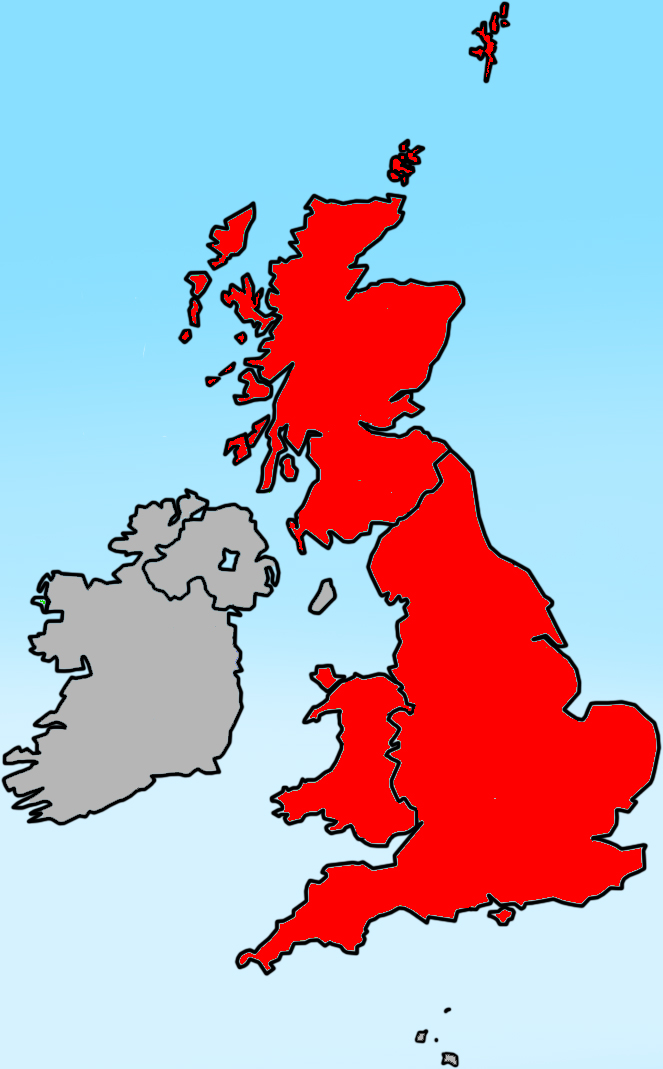
🎶 How to say ‘Grande-Bretagne’ in French ⤵
Bretagne refers to Brittany, a French province.
Therefore, Britain is synonymous with Great Britain and corresponds to la Bretagne insulaire or l’île de Bretagne (literally Island Brittany or the Isle of Brittany).
Modern historians use these French terms to refer to Britain until the 10th-11th century.
These terms, in turn, replaced the use of the archaic names Albion and Britannia.
Great Britain is sometimes abbreviated in French as GB as in English.
The United Kingdom in French
Le Royaume-Uni (United Kingdom) is the European kingdom consisting of:
- la Grande-Bretagne (Great Britain), and
- l’Irlande du Nord (Northern Ireland).
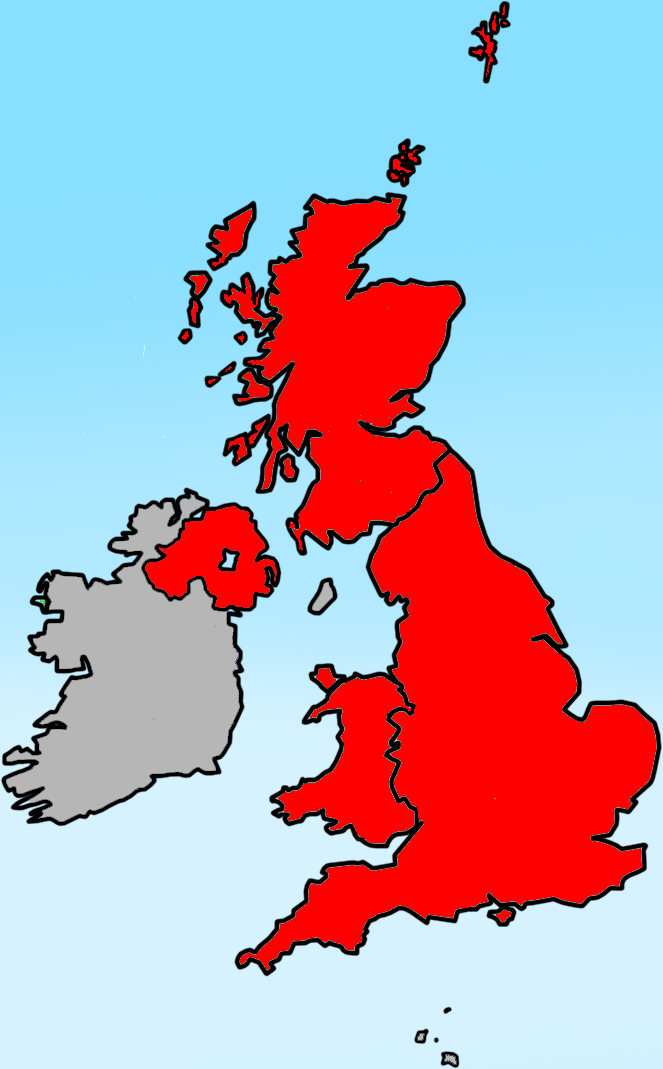
Officially, it is known in French as le Royaume-Uni de Grande-Bretagne et d’Irlande du Nord (United Kingdom of Great Britain and Northern Ireland).
🎶 How to say ‘Royaume-Uni’ in French ⤵
🎶 How to say ‘Royaume-Uni de Grande-Bretagne et d’Irlande du Nord’ in French ⤵
It is sometimes abbreviated in French as R.-U. (in English: UK).
Therefore, the United Kingdom includes:
- L’Angleterre (England), un Anglais/une Anglaise
- Le Pays de Galles (Wales), un Gallois/une Galloise
- L’Écosse (Scotland), un Écossais/une Écossaise
- L’Irlande du Nord (Northern Ireland), un Nord-Irlandais/une Nord-Irlandaise
🎶 How to say ‘Pays de Galles’ in French ⤵
🎶 How to say ‘Écosse’ in French ⤵
🎶 How to say ‘Irlande du Nord’ in French ⤵
The Crown dependencies in French
The Dépendances de la Couronne (Crown dependencies) is a group of islands that do not form part of the United Kingdom.
They are three island territories off the coast of Great Britain that are self-governing possessions of The Crown:
- le bailliage de Jersey (the Bailiwick of Jersey),
- le bailliage de Guernesey (the Bailiwick of Guernsey), and
- l’Île de Man (Isle of Man).
The first two are the Channel Islands, off the north coast of France.
The Channel Islands in French
Les Îles anglo-normandes or Îles de la Manche (the Channel Islands) are a group of islands in the English Channel, west of the Cotentin Peninsula in France.
Saint-Hélier (Saint Helier), the capital of Jersey, is only 30 kilometres from the Normandy coast.
These islands are the island part of the historical Duchy of Normandy.
The islands have the particularity of having Norman language words in their toponymy. Translating specific names into English has sometimes given rise to mixed names, such as Bonne nuit bay or La Corbière lighthouse.
The islands are divided into two bailliages (bailiwick):
Jersey (Les Minquiers, Les Écréhou)
Guernsey, including:
- Aurigny (Alderney),
- Burhou,
- Sercq (Sark),
- Brecqhou,
- Lihou,
- Herm,
- Jéthou.
The British Isles in French
Les Îles Britanniques (British Isles) refer to:
- la Grande-Bretagne (Great Britain),
- l’Irlande (Ireland),
- and more than 6,000 smaller islands located nearby (Isle of Man, Shetland, Hebrides…).
This group of islands includes two sovereign states:
- le Royaume-Uni de Grande-Bretagne et d’Irlande du Nord (the United Kingdom of Great Britain and Northern Ireland)
- and la République d’Irlande (the Republic of Ireland).
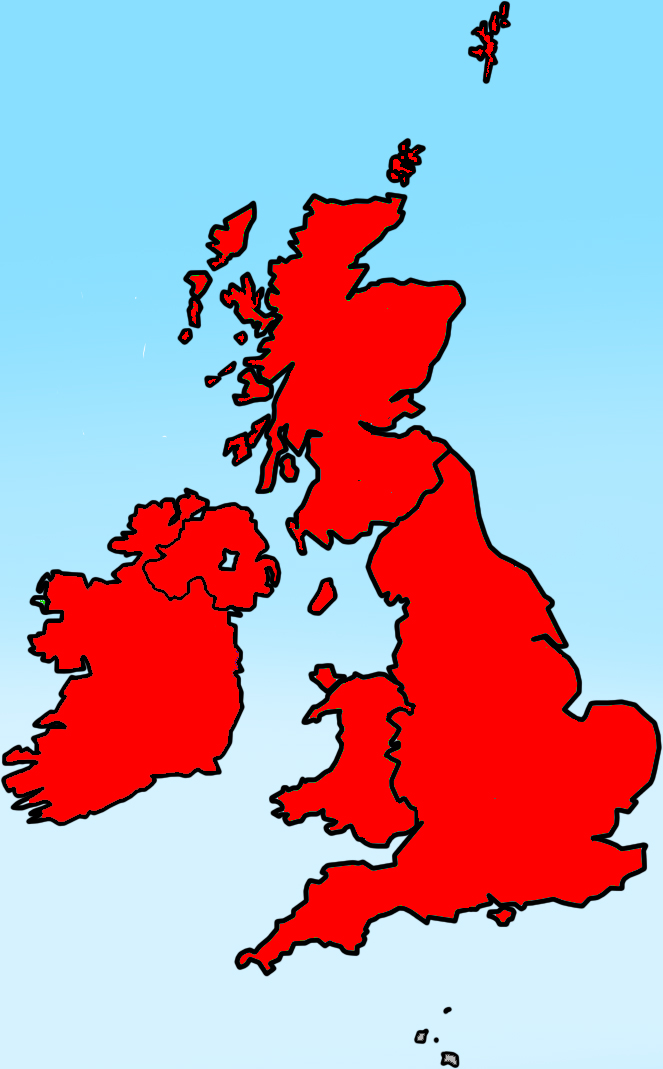
The Channel Islands are sometimes excluded from the territory of the British Isles because they belong to the historical province of Normandy.
The British Islands in French
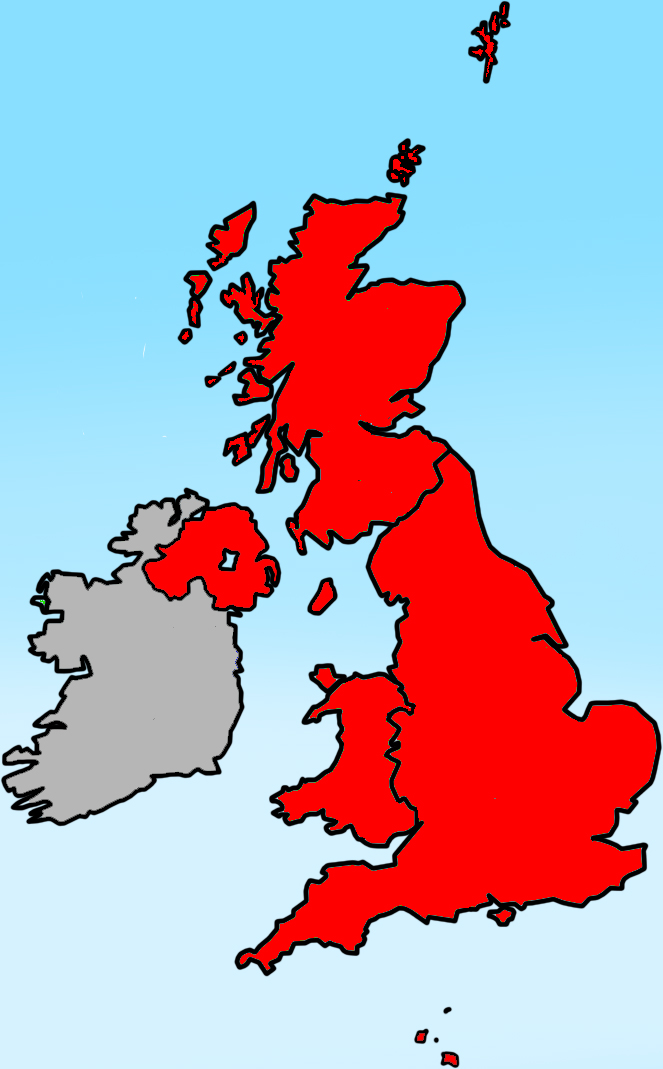
These are the European islands subject to the British Crown:
- la Grande-Bretagne (Great Britain),
- l’Irlande du Nord (Northern Ireland),
- l’Île de Man (the Isle of Man),
- Jersey, and
- Guernesey (Guernsey).
![Brecqhou island © Diegourdiales - licence [CC BY 3.0] from Wikimedia Commons](https://frenchmoments.eu/wp-content/uploads/2021/04/Brecqhou-island-©-Diegourdiales-licence-CC-BY-3.0-from-Wikimedia-Commons.jpg)
The term the British Islands is indeed very close to that of the British Isles but does not include the Republic of Ireland. In French, there is no equivalent other than “la Couronne britannique”, therefore, many use les Îles Britanniques, although it is a bit inaccurate!
However, there is no need to panic! In everyday language, the British Isles is more commonly used. In fact, when I asked English people to tell me the difference between these two terms, they could not answer.
To summarise, here’s the Euler diagram that shows the complexity of the imbricated territories:
![England in French - Diagramme d'Euler des Îles Britanniques © Treehill - licence [CC BY-SA 3.0] from Wikimedia Commons](https://frenchmoments.eu/wp-content/uploads/2021/04/Diagramme-dEuler-des-Îles-Britanniques-©-Treehill-licence-CC-BY-SA-3.0-from-Wikimedia-Commons.jpg)
The francisation of place names in England
Unlike Germany, Italy or Switzerland, few British place names are translated into French. Why is this?
There may be several historical and cultural reasons.
Britain is an island that has never been invaded since William the Conqueror in the 11th century. Therefore, there is no need for the French to francise place names that have never belonged to them or are even unknown to them.
The Francisation of London
This does not apply to the capital, London, whose European fame justified using a French name: Londres.
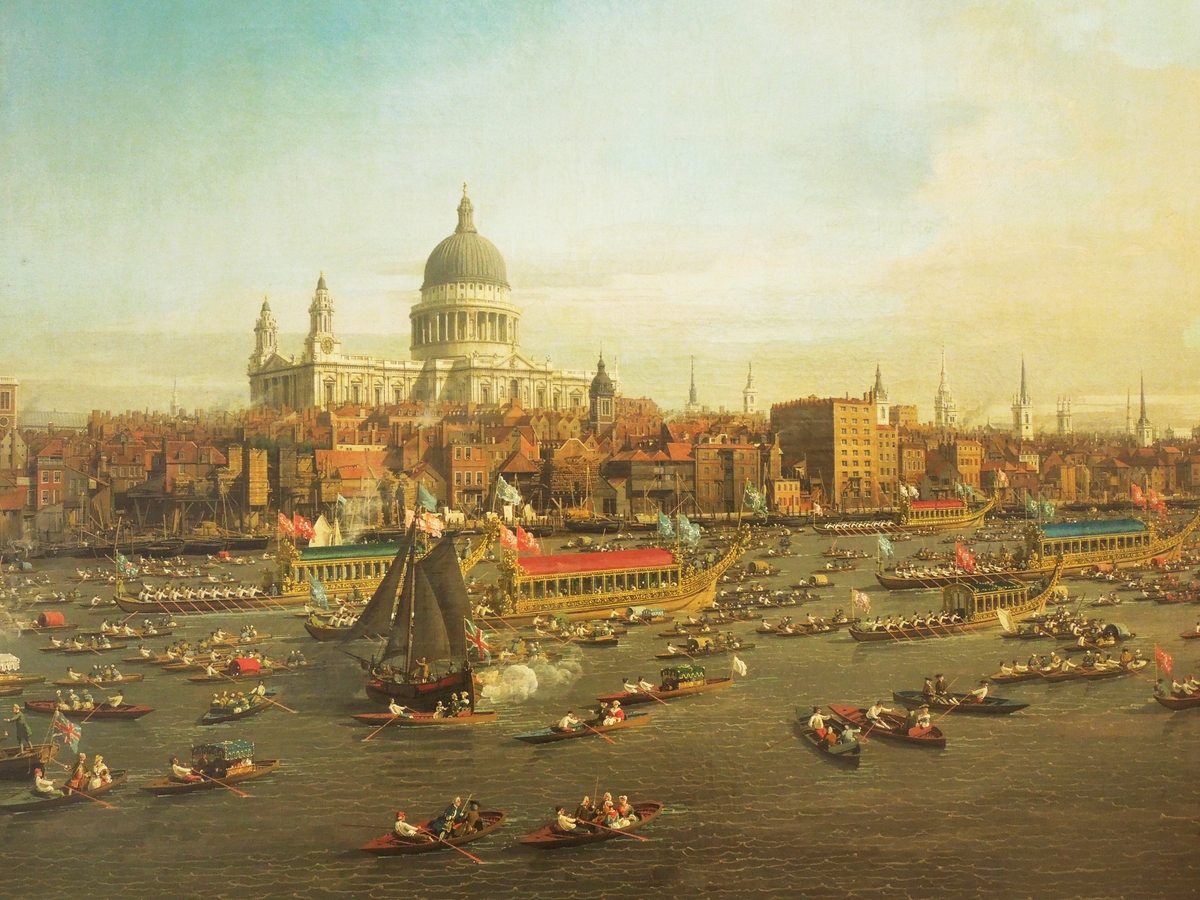
🎶 How to say ‘Londres’ in French ⤵
Known in Roman times as Londinium, the city saw its name adopted in Old English by the Anglo-Saxons in the 7th century: Lunden, which evolved into London.
To adapt it to French phonology (as continental Latins have difficulty pronouncing certain sounds), London was replaced by Londre.
As for the final “s”, it would have been a mistake by the printers who, by analogy with cities like Amiens, Beauvais, Calais or Chartres, would have added a silent “s”.
What are the names of the English regions in French?
Most regions, counties and shires in the UK have kept their English names in French.
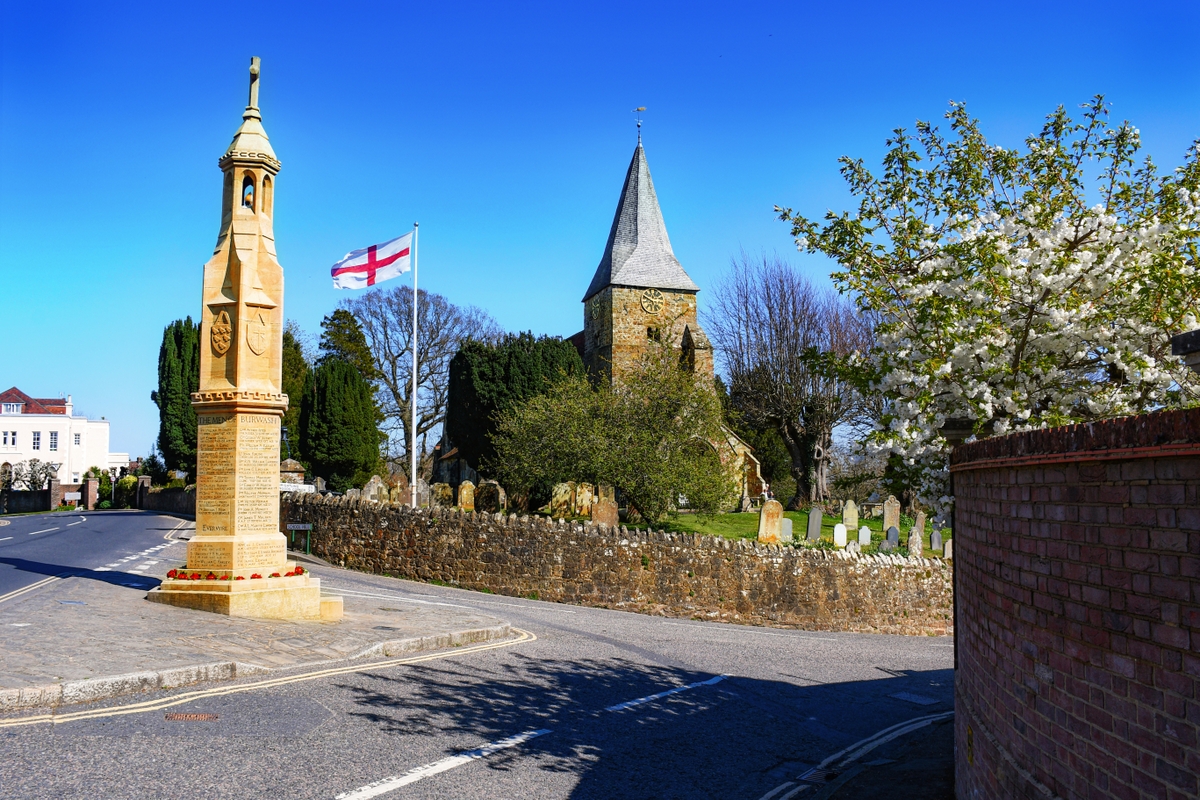
The 9 regions of England in French
- Angleterre du Sud-Est (South East England)
- Angleterre du Sud-Ouest (South West England)
- Grand Londres (Greater London)
- Angleterre de l’Est (East of England)
- Midlands de l’Est (East Midlands)
- Midlands de l’Ouest (West Midlands)
- Angleterre du Nord-Ouest (North West England)
- Angleterre du Nord-Est (North East England)
- Yorkshire-et-Humber (Yorkshire and the Humber)
The English counties in French
Les comtés (counties) are generally masculine except when francised: le Kent, le Sussex. Most of them have kept their English names in French, except for:
- La or les Cornouailles (Cornwall)
- La Cumbrie (Cumbria)
- Le Lancastre (Lancashire)
- La Northumbrie (Northumbria)
In addition, East Anglia is Est-Anglie and Mercia is Mercie.
What are the English cities in French?
The largest cities of the United Kingdom don’t have different names in French. However, there is the notable exception of London => Londres.
And also:
- Cantorbéry (Canterbury),
- Douvres (Dover),
- and on a few occasions, Bornemouth (Bournemouth)
Generally, all suffixes -burgh are francised –bourg, like in Edinburgh => Edimbourg.
![England in French - Edinburgh © Nono vlf - licence [CC BY-SA 4.0] from Wikimedia Commons](https://frenchmoments.eu/wp-content/uploads/2021/04/Edinburgh-©-Nono-vlf-licence-CC-BY-SA-4.0-from-Wikimedia-Commons.jpg)
British Hydronyms and Oronyms in French
A hydronym is a name given to a body of water.
An oronym is applied to naming a mountain or hill.
Here are a few examples of names used often in French:
Seas
- l’Océan Atlantique (the Atlantic Ocean)
- la Mer d’Irlande (the Irish Sea)
- le Canal Saint-Georges (Saint George’s Channel)
- le Canal de Bristol (Bristol Channel)
- la Mer Celtique (the Celtic Sea)
- la Manche (the English Channel)
- le Pas de Calais (the Straits of Dover)
- la Mer du Nord (the North Sea)
![England in French - Carte de la Manche © Idarvol - licence [CC BY-SA 3.0] from Wikimedia Commons](https://frenchmoments.eu/wp-content/uploads/2021/04/Carte-de-la-Manche-Edinburgh-©-Idarvol-licence-CC-BY-SA-3.0-from-Wikimedia-Commons.png)
Islands of Great Britain in French
- Îles Sorlingues (Isles of Scilly)
- Les Hébrides (Hebrides)
- Les Orcades (Orkney)
Rivers
Only one river in England has its name in French:
La Tamise (River Thames).
Most English rivers are feminine when used in French: la Severn, la Mersey, la Rother…
In addition, le Canal Calédonien is the Caledonian Canal.
Hills and mountains
- Les monts Grampian (Grampian mountains)
- Les monts du Cumberland or les Montagnes Cumberland (Cumberland mountains)
- La chaîne Pennine or Les Pennines (Pennines or Pennine Chain)
- Les monts Cambriens (Cambrian mountains) ou Lake District
- Le plateau de Cornouailles (Plateau of Cornwall)
![Keswick Lake District © Diliff - licence [CC BY-SA 3.0] from Wikimedia Commons](https://frenchmoments.eu/wp-content/uploads/2021/04/Keswick-Lake-District-©-Diliff-licence-CC-BY-SA-3.0-from-Wikimedia-Commons-scaled.jpg)
English Names in French that have fallen into disuse
Several towns in the south of England, which the French have long frequented, had their equivalent in the French language. These names have now fallen into disuse.
- Bouquinquan (Buckingham)
- Ouestmoutiers (Westminster)
- Vicêtre (Winchester)
- Glasgovie (Glasgow)
- Grausine (Gravesend)
- Lime (Lyme Regis)
- Leues (Lewes)
- Porsmue (Portsmouth)
- Rocheford (Rochford)
- Saverne (Severn river)
- Peterbourg (Peterborough)
- Nieuark (Newark-on-Trent)
- Neufchâtel (Newcastle)
French-originated names in England
In some instances, the French-speaking aristocracy and ecclesiastical hierarchy gave distinctively French names to their castles, estates, and monasteries:
- Battle (from Bataille),
- Belvoir
- Grosmont
- Montacute
- Richmond (Richemont)
While some of them refer to landscape and other features (Devizes, Malpas).
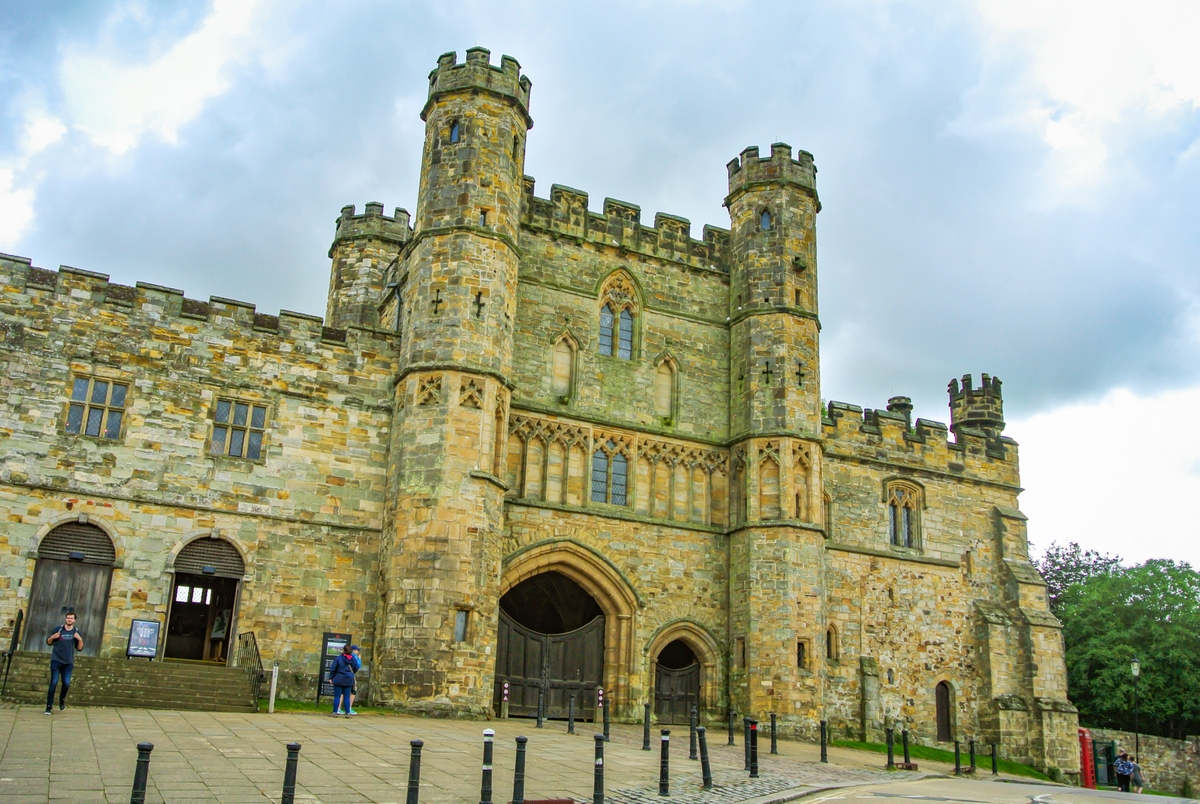
The geography of France in English
Inversely, places in France are sometimes named differently in English. Overall the English names tend to be the same as in French.
In the middle-ages, French was the language of the aristocracy and nobility. Therefore, there was no reason to anglicise the names of provinces and cities.
However, there are several exceptions.
France in English is France, and la République française is the French Republic.
Mountains of France in English
- Alps (Alpes)
- French Alps (Alpes françaises)
- Pyrenees (Pyrénées)

Seas and rivers of France in English
- Atlantic Ocean (océan Atlantique)
- Bay of Biscay (Golfe de Gascogne)
- English Channel (Manche)
- French Riviera (Côte d’Azur)
- Mediterranean sea (mer Méditerranée)
- North Sea (mer du Nord)
- Rhine (Rhin)
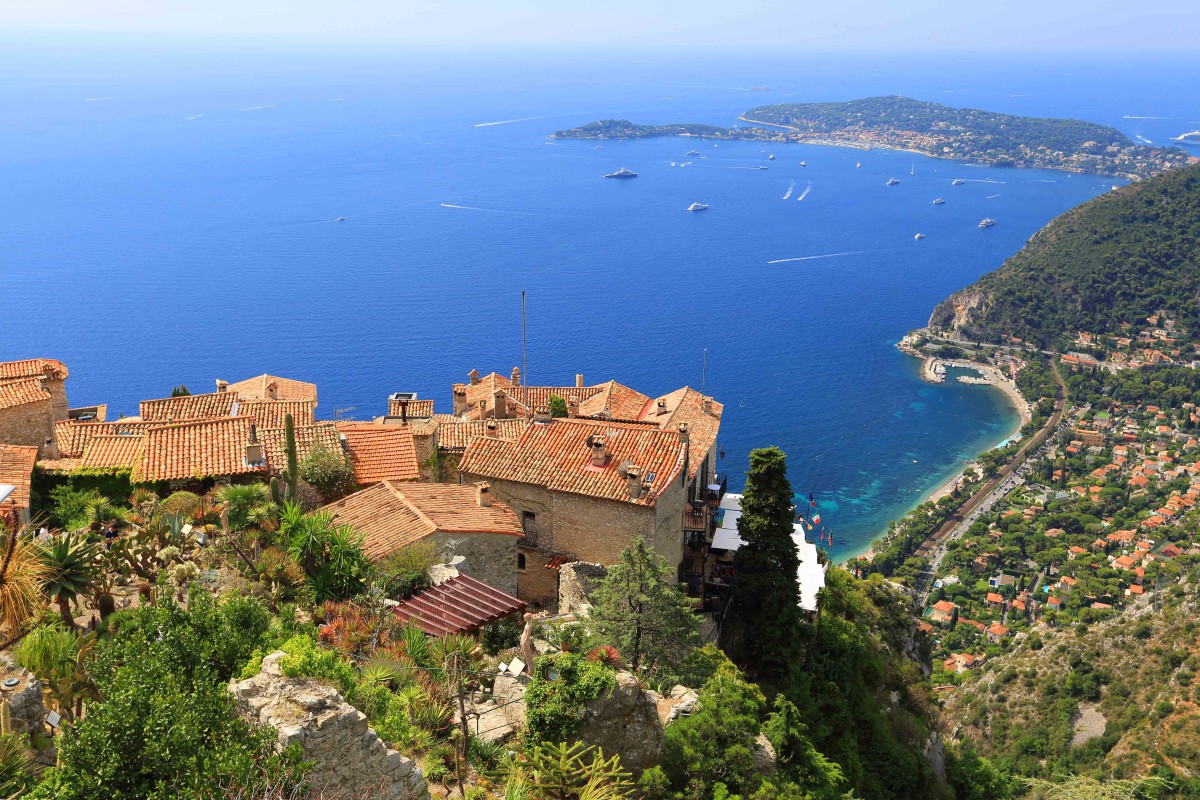
Islands of France in English
- Corsica (Corse)
- Ushant (Ouessant)

The regions and provinces of France in English
- Brittany (Bretagne)
- Burgundy (Bourgogne)
- Corsica (Corse)
- Dauphiny (Dauphiné) – Obsolete
- Flanders (Flandre)
- Gascony (Gascogne)
- Normandy (Normandie)
- Occitania (Occitanie)
- Picardy (Picardie)
- Savoy (Savoie)
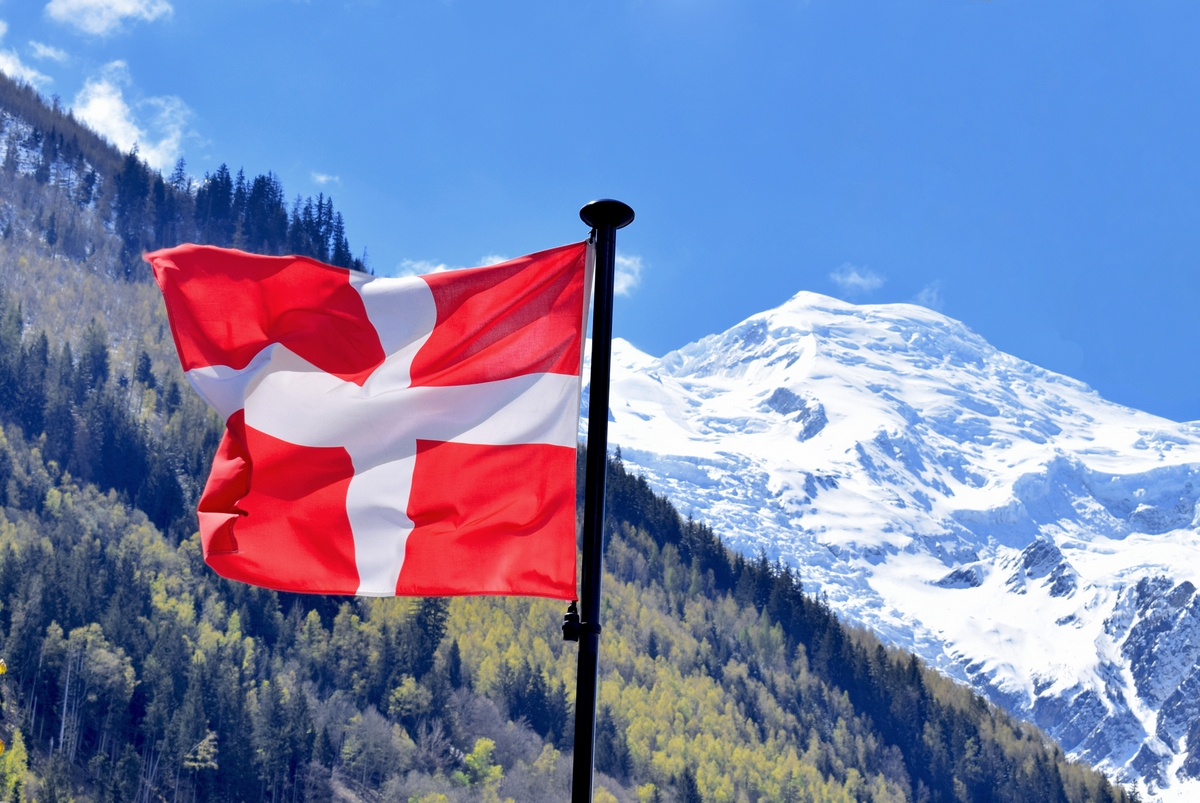
The cities of France in English
In most cases, French towns have kept their local name in English.
However, there was sometimes a different spelling in the past, which tends to disappear. This was the case for the following French towns:
- Bethwyn (Béthune) – obsolete
- Camerick (Cambrai) – obsolete
- Dunkirk (Dunkerque)
- Lyons (Lyon)
- Marseilles (Marseille)
- Rheims (Reims)
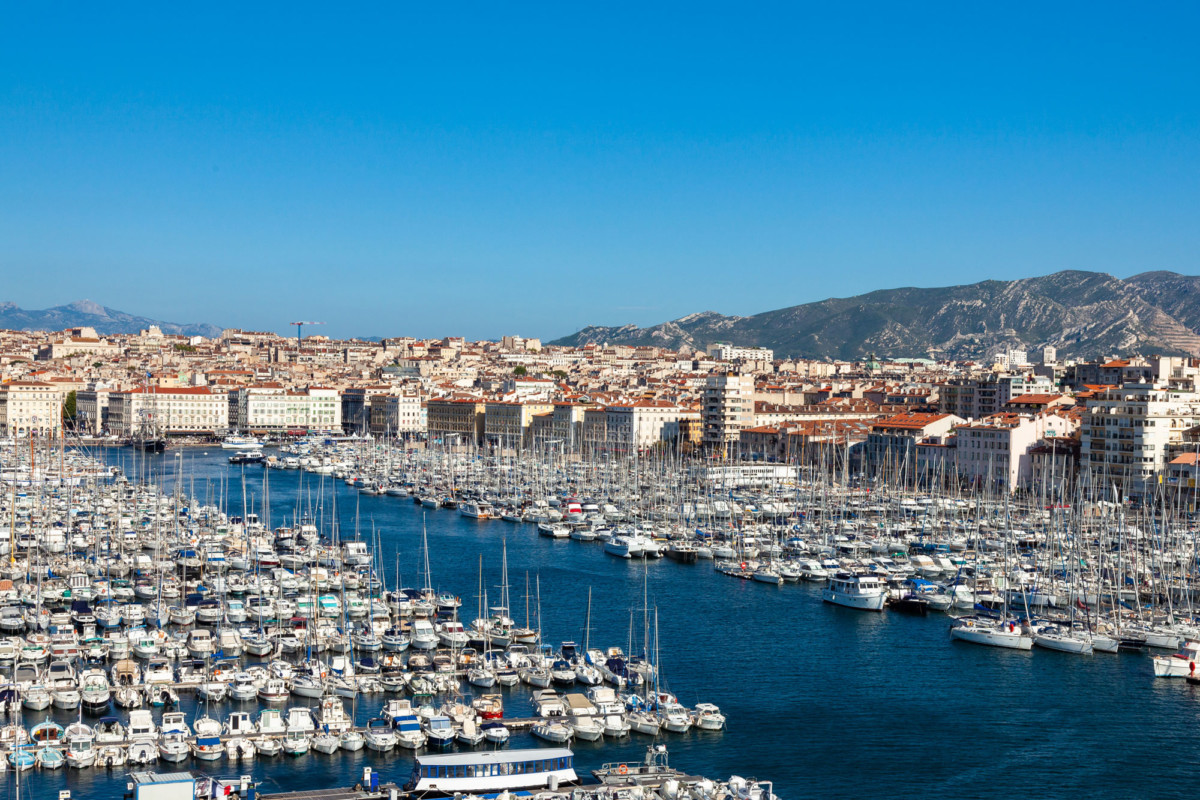
Twin Towns between France and England
It is estimated that nearly 20,000 French people are actively participating in twinning programmes.
Out of 6,700 committees in France, nearly 1,100 include English-French twinning towns and villages (compared to 2,300 with Germany and 1,000 with Italy).
One of the first Franco-British twinnings brought together the water towns of Luchon and Harrogate during a French Week in May 1953.
Cities and towns sharing a common feature or interest
Many French and English twinned cities and towns share a common feature or interest.
As the saying goes: qui se ressemble s’assemble (like seeks like).
It could be:
- a prestigious university (Grenoble and Oxford)
- an industrial past (Lille and Leeds)
- geographical proximity (Boulogne-sur-Mer and Folkestone, Calais with Dover)
- a lofty cathedral (Chartres and Chichester, Reims with Canterbury)
- a historic castle (Saumur and Warwick)
- a large-size city with national influence (Marseille and Glasgow)
- a prestigious site (Neuilly-sur-Seine and Windsor)
- a historic bath town (Aix-en-Provence and Bath)
- a port city (Le Havre and Southampton)
- a military port (Toulon and Portsmouth)
Examples of English and French twinning towns
- Andover with Redon
- Ashford with Fougères
- Ayr with Saint-Germain-en-Laye
- Basildon with Meaux
- Bathgate with Annecy
- Bognor Regis with Saint-Maures-des-Fossés
- Bristol with Bordeaux
- Burgess Hill with Abbeville
- Canterbury with Reims
- Cardiff with Nantes
- Colchester with Avignon
- Coventry with Saint-Etienne
- Cowes with Deauville
- Darlington with Amiens
- Deal with Saint-Omer
- Dorchester with Bayeux
- Dover with Calais
- Edinburgh with Nice
- Folkestone with Boulogne-sur-Mer
- Gloucester with Metz
- Gosport with Royan
- Gravesham with Cambrai
- Hastings with Béthune
- Ipswich with Arras
- Leicester with Strasbourg
- Lewes with Blois
- Lyme Regis with Barfleur
- Middlesbrough with Dunkerque
- Newcastle-upon-Tyne with Nancy
- Newmarket & Exning with Maisons-Laffitte
- Newquay with Dinard
- Norwich with Rouen
- Perth with Cognac
- Peterborough with Bourges
- Plymouth with Brest
- Poole with Cherbourg-en-Cotentin
- Portsmouth with Caen and Toulon
- Preston with Nîmes
- Sevenoaks with Pontoise
- Stafford with Belfort
- Sunderland with Saint-Nazaire
- Tonbridge with Le Puy-en-Velay
- Wadhurst with Aubers
- Walsall with Mulhouse
- Warwick with Saumur
- York with Dijon
Click here for a comprehensive list of France-UK twinning programmes.
French towns not twinned with the UK
Curiously, some major towns in France are not twinned with a UK counterpart (and vice-versa):
- Chamonix-Mont-Blanc
- Colmar
- La Rochelle
- Menton
- Montpellier (should be twinned with Manchester soon)
- Paris (only twinned with Rome)
- Sarlat-la-Canéda
England in French: Find out more!
- France in French: A Little Guide!
- Germany in French: A Little Guide!
- America in French: A Little Guide!
- The visits of Queen Elizabeth II to France
- The geography of France for (English) kids!
- Find out more about the French names of England on Wikipedia.
- Discover Britain on the official tourist website.
- Discover our French blog about England: Destination Angleterre

